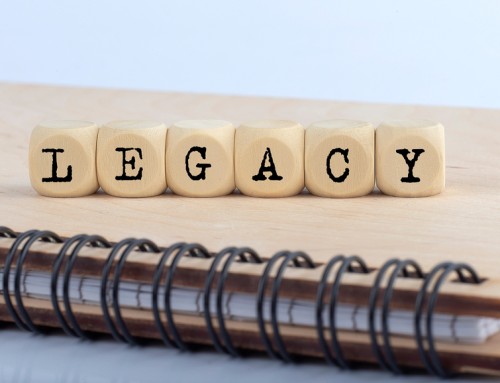Creating a will or trust is one of the most significant things you can do for your loved ones. With your estate's future at stake, it may be tempting to go the quick-and-easy route by just using an online template. However, like most shortcuts in life, it comes with risks that can lead to unwanted surprises for you and your family.
Below, we’ll explore seven key reasons why using online sites and DIY forms for wills and trusts can be a risky decision!
1. One Size Does Not Fit All
When it comes to estate planning, cookie-cutter solutions simply don’t work. Online forms try to simplify the process with a generic template, but life is rarely so straightforward.
- Your family situation might be complex. You may have blended families, dependents with special needs, or estranged relatives.
- Personal dynamics often require nuanced decision-making, which online platforms aren't equipped to handle.
In contrast, an experienced estate attorney takes the time to understand your specific needs, ensuring your documents are drafted with all of your unique circumstances in mind. A successful plan is always tailor-made, not pulled off the virtual shelf.
2. Legal Requirements Are Not Always Simple
Different states have different laws, and estate planning is highly jurisdictional. What might be acceptable in one state could be completely invalid in another. DIY will sites generally provide a one-size-fits-all document and often lack updated information regarding:
- Changes in state laws
- The requirements for signing or witnessing documents
- Nuances around specific assets, like property in another state or digital assets
Failure to meet just one of these requirements can render your entire will or trust invalid. Having a professional ensures that your documents comply with the latest local laws and meet all formalities—no loopholes, no missed steps.
3. Mistakes Can Be Extremely Costly
Unlike a small typo in an email, an error in your estate planning documents can have massive consequences. For instance:
- Ambiguity in language: Online forms use standard phrases, which can leave room for misinterpretation. What seems clear to you may confuse your beneficiaries or lead to family disputes.
- Missed provisions: There may be crucial clauses missing from a DIY form that address contingencies, such as what happens if a beneficiary predeceases you or if specific assets are sold before your death.
Consider the cost of probate litigation if your family members end up fighting over the wording of a hastily drafted online will. Litigation costs can easily overshadow the modest investment in hiring a professional to get it right the first time.
4. Lack of Personalized Advice
A significant part of estate planning isn’t just drafting documents—it's getting personalized advice from someone who understands the legal landscape and has your best interests at heart. With online forms, you miss out on guidance like:
- Choosing the right kind of trust based on tax considerations
- Crafting clauses that prevent family disputes
- Planning for long-term care, asset protection, and charitable giving
For example, an online form might tell you to simply name a beneficiary. However, an attorney can provide insight into whether a spendthrift provision might be wise if a beneficiary has financial troubles or if establishing a special needs trust could better protect a loved one with disabilities.
5. Family Situations Can Get Messy
Let’s face it—families are complicated. Whether it’s remarriage, sibling rivalry, or estranged relatives, your estate planning needs to be done with care and precision to avoid future conflict.
Here’s a scenario: you have children from a previous marriage but also want to ensure your current spouse is well taken care of. Online forms can’t adequately handle these kinds of delicate balancing acts. Instead, they offer binary options—either/or decisions that might not align with what you want. Without the necessary flexibility, your true wishes might not be reflected.
An experienced estate attorney will help navigate these emotional waters, offering solutions like QTIP trusts to provide for a current spouse while ensuring children receive their intended inheritance later on.
6. Your Needs Will Change Over Time
Estate planning isn’t a one-time affair. As your life changes, so too should your estate plan. Events like marriage, divorce, birth of children, or the acquisition of significant assets necessitate changes to your documents. Online wills are typically static, and platforms often lack the prompts or advice you need when your circumstances evolve.
Attorneys, on the other hand, are in it for the long haul. They:
- Can help review and update your will or trust periodically
- Ensure your documents reflect the latest changes in tax law
- Advise on advanced strategies that suit your changing life situation, like setting up a family trust to reduce estate tax burdens
A plan that was right for you 10 years ago might be outdated today, and online forms don’t proactively adapt.
7. Peace of Mind Is Priceless
Perhaps the most compelling reason to avoid DIY estate planning is the peace of mind that comes from knowing your family is truly protected. Using online tools may save you money upfront, but it often results in documents that are incomplete, incorrect, or unenforceable—leaving a mess for your loved ones to sort out during an already difficult time.
Hiring an attorney to craft your will or trust means:
- Less stress for your loved ones, who will know that everything is in place and that your wishes are crystal clear.
- Protection from disputes: With a carefully drafted document, your family is less likely to argue over vague language or unclear intentions.
- Tax optimization: Estate lawyers often find ways to structure your assets so your family pays less in taxes, something a generic form simply won’t do.
When all is said and done, a few dollars saved today isn’t worth the heavy burden of uncertainty tomorrow. Peace of mind is an investment that pays dividends, not just for you, but for your family too.
Don't Leave Your Legacy to Chance—Trust KEYTLaw
Estate planning is too important to leave to chance—or to a form you filled out in fifteen minutes online. Every family is unique, and every individual's circumstances require a plan that reflects the complexities of their life. At KEYTLaw, we understand those complexities. Let us help you build a will or trust that protects your loved ones and honors your wishes, now and well into the future.
Ready to talk about your estate plan? Contact KEYTLaw today for a free consultation. We're here to make sure your family is taken care of—just the way you intend.






